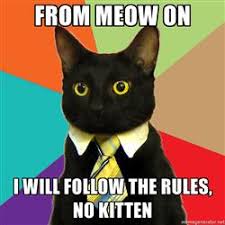 Craig and Tony are at YOW! conference in Brisbane and chat with Jutta Eckstein, author of “Agile Software Development in the Large“, “Agile Software Development with Distributed Teams“, “Retrospectives for Organisational Change” “Diving for Hidden Treasures: Uncovering the Cost of Delay in Your Project Portfolio” with Johanna Rothman and “Company-wide Agility with Beyond Budgeting, Open Space & Sociocracy: Survive & Thrive on Disruption” with John Buck
Craig and Tony are at YOW! conference in Brisbane and chat with Jutta Eckstein, author of “Agile Software Development in the Large“, “Agile Software Development with Distributed Teams“, “Retrospectives for Organisational Change” “Diving for Hidden Treasures: Uncovering the Cost of Delay in Your Project Portfolio” with Johanna Rothman and “Company-wide Agility with Beyond Budgeting, Open Space & Sociocracy: Survive & Thrive on Disruption” with John Buck
- Smalltalk and pattern languages was where a lot of the early work and a lot of the early players converged
- Scrum had great marketing and certification over Extreme Programming
- Agile Software Development in the Large came out in 2004 and was probably way before its time
- Craig Larman and Bas Vodde book “Scaling Lean & Agile Development“
- IBM book “A Practical Guide to Distributed Scrum“
- A framework is not really necessary, stick with the Agile values and principles regardless of your context
- Heart of Agile (and Tony’s rant on scaling)
- 40 Agile Methods in 40 Minutes
- Retrospectives are great for any sort of change, not just software
- There is no way of becoming Agile as a company without the CFO on board and moving from yearly budgeting – beyond budgeting assists from both the money side and the strategic side
- Sociocracy looks at the organisation from the structure side – we need to build structures that allow us to make decisions more quickly through double linking and built in feedback loops
- Open Space techniques are essential for facilitation and product liftoff and about using the passion of the people for innovation of your products
- If you trust people maybe its cheaper than checking procedures
- Need some background, come up with a hypothesis, design some experiments and measure
- Experiments need to be safe to fail – either if the hypothesis is not true or the outcome is not valuable
- Not “safe to fail” but “failing safely” or “safe to learn”
- Publish your experiments so people can learn from each other (even if only internally)
- agilebossanova.com – collecting stories
- Agile Alliance Speaker Reimbursement initiative – support for Agile meetups and conferences to bring in external speakers and go towards cover travel reimbursements
TheAgileRevolution-181 (41 minutes)






